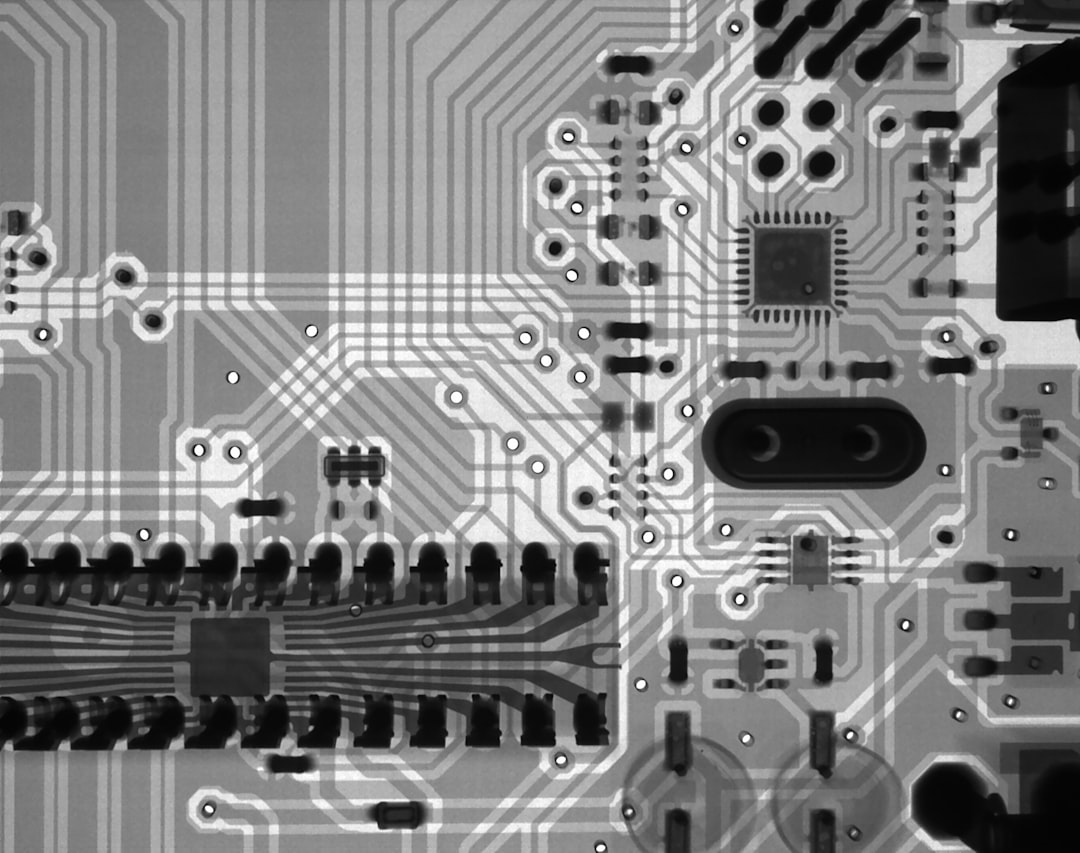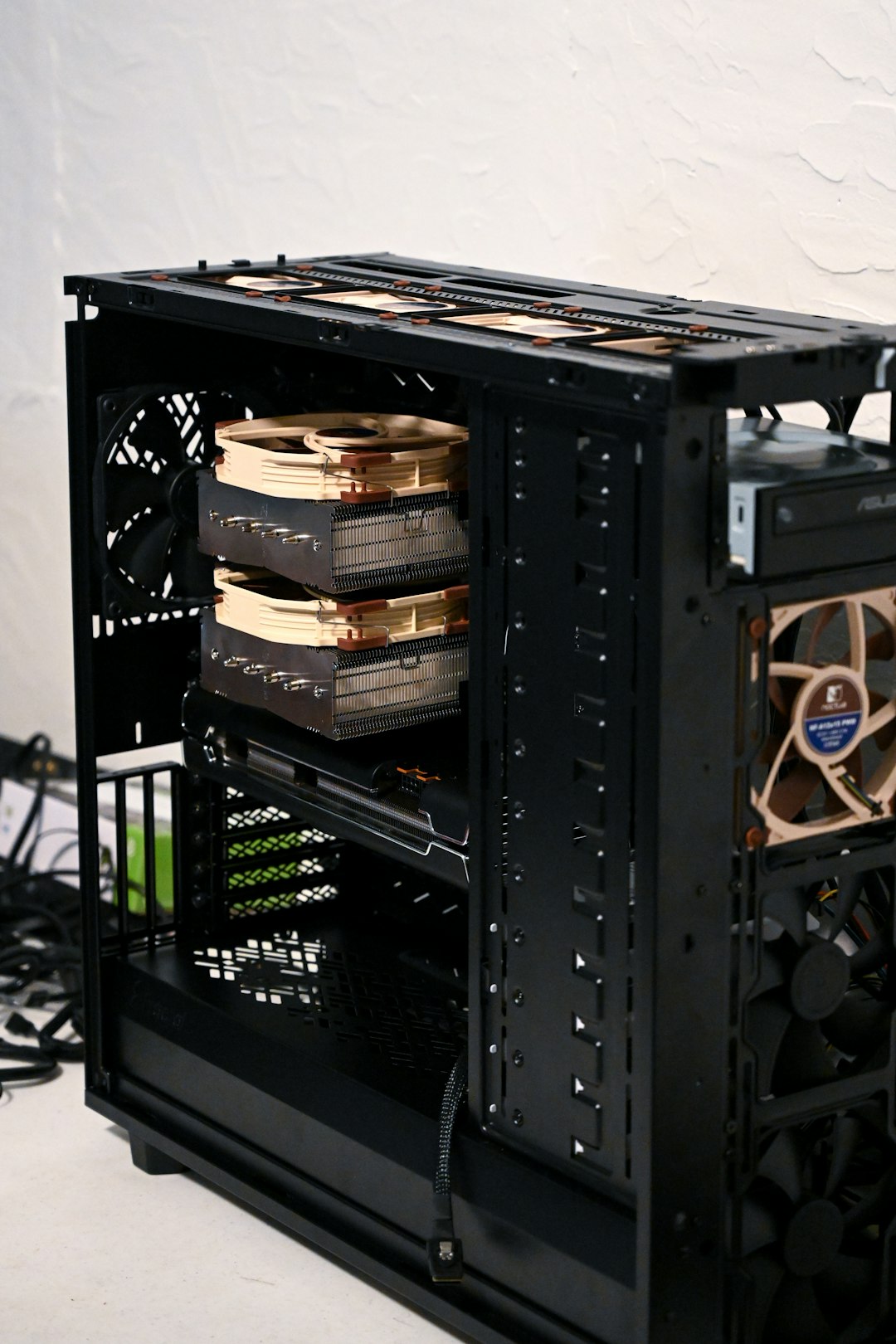Unlock encrypted content
Please enter your SSCE key to initiate on-the-fly decryption.
Decryption key: (Click cancel if you don't have the key)
Copied link to clipboard.
This feature is unavailable for free accounts. Upgrade now and enjoy all Premium benefits.
Go Premium!
This feature is unavailable for free accounts. Upgrade now and enjoy all Premium benefits.
Go Premium!
Please open this page in browser ( Google Chrome or Safari ) to use this feature.
Open In Browser
Smart Contracts: Revolutionizing Data Storage and Beyond
Random related video for this blog.
Copied share link to clipboard.
Traditional methods of data storage, such as physical hard drives or centralized cloud storage providers, have their limitations and vulnerabilities. However, with the advent of smart contracts and decentralized technologies, a new era of data storage and management is emerging. This article explores the potential of smart contracts in revolutionizing data storage, along with their applications in various domains, from dystopian futures to interstellar colonization.
Smart Contracts: A Game-Changer in Data Storage
Smart contracts, powered by blockchain technology, are self-executing agreements with the terms of the agreement written into code. These contracts automatically execute when predefined conditions are met, eliminating the need for intermediaries and ensuring transparency and trust. While initially designed for financial transactions, smart contracts have found their way into various industries, including data storage. By leveraging the decentralized nature of blockchain technology, smart contracts offer a secure and reliable way to store and manage data. Instead of relying on a single centralized server, data is distributed across a network of computers, known as nodes. Each node stores a copy of the data, making it virtually impossible for any single point of failure or malicious attack to compromise the entire system.Data Storage in Dystopian Futures
As technology continues to advance, so does the potential for dystopian futures, where individual privacy and data security are at risk. Smart contracts can play a crucial role in protecting our digital rights and ensuring data sovereignty. By enabling end-to-end encryption and decentralized storage, smart contracts give individuals control over their data, reducing the risk of surveillance and unauthorized access. Furthermore, smart contracts can facilitate protection for shared links, ensuring that only authorized individuals can access sensitive information. By embedding access control mechanisms within the contract code, data owners can define who can view, edit, or share their files. This level ofgranular control enhances data privacy and prevents unauthorized dissemination of information.
Smart Contracts and the Rise of Smart Cities
The concept of smart cities, where technology is seamlessly integrated into urban environments to enhance efficiency and sustainability, is gaining momentum. Smart contracts can play a vital role in this transformation by providing secure and efficient data storage for various smart city applications. For instance, in a smart city, data generated from sensors, cameras, and other devices need to be stored and analyzed in real-time. Smart contracts can ensure the integrity and security of this data, allowing city officials to make informed decisions and optimize resource allocation. Moreover, smart contracts can enable seamless mobile file access, ensuring that authorized personnel can access critical data anytime, anywhere, using their smartphones or other devices.From Earth to the Stars: Smart Contracts and Interstellar Colonization
The dream of interstellar colonization has captured the imagination of scientists and enthusiasts alike. Smart contracts can play a significant role in ensuring the success and sustainability of such ambitious endeavors. By utilizing decentralized data storage, smart contracts can securely store vast amounts of information required for long-duration space missions. Additionally, smart contracts can facilitate the exchange of resources and services between different space-faring entities. For example, in a scenario where multiple organizations collaborate in building a space station, smart contracts can ensure fair and transparent resource allocation, incentivizing cooperation and preventing disputes.Virtual Realities and Bioprinting: The Next Frontiers
Smart contracts are not limited to data storage alone. They can also revolutionize emerging technologies such as virtual realities (VR) and bioprinting. In the realm of VR, smart contracts can enable secure and decentralized storage of virtual assets, ensuring ownership rights and preventing unauthorized duplication or theft. In the field of bioprinting, where 3D printers are used to create living tissues and organs, smart contracts can ensure the integrity and traceability of the data required for printing. By securely storing the genetic information and printing instructions on a blockchain, smart contracts can prevent tampering and guarantee the authenticity of the printed organs.Conclusion
Smart contracts have the potential to revolutionize data storage and management across various domains. From ensuring privacy and security in dystopian futures to facilitating interstellar colonization, smart contracts offer a decentralized and transparent solution to the challenges of traditional data storage methods. As technologies like virtual realities and bioprinting continue to advance, smart contracts will play an increasingly vital role in ensuring the integrity and security of our digital future.Frequently Asked Questions (FAQs)
Question: What is the advantage of using smart contracts for data storage? Answer:
Smart contracts provide a secure and decentralized solution to data storage, reducing the risk of data breaches and unauthorized access. They also ensure transparency and trust by eliminating the need for intermediaries.
Question: How can smart contracts protect data privacy in dystopian futures? Answer:
Smart contracts enable end-to-end encryption and access control mechanisms, giving individuals control over their data and reducing the risk of surveillance and unauthorized dissemination.
Question: How can smart contracts benefit smart cities? Answer:
Smart contracts can ensure secure and efficient storage of data generated in smart cities, enabling real-time analysis and informed decision-making. They also facilitate seamless mobile file access for authorized personnel.
Case Studies
Case Study 1: Smart Contract-Based Data Storage for Healthcare In a healthcare setting, smart contracts can revolutionize data storage and sharing. For example, patient records can be securely stored on a blockchain, with access control mechanisms embedded in smart contracts. This ensures that only authorized healthcare providers can access and update the records, enhancing patient privacy and reducing the risk of data breaches.
Case Study 2: Smart Contracts in Space Exploration Space agencies and private companies involved in space exploration can leverage smart contracts for secure and efficient data storage. By utilizing decentralized storage, smart contracts can ensure the integrity and accessibility of critical mission data, even in extreme environments. This enhances the reliability and success of space missions.
Case Study 3: Smart Contracts for Virtual Asset Ownership In the world of virtual realities and online gaming, smart contracts can enable secure ownership and trading of virtual assets. By storing ownership rights on a blockchain, smart contracts prevent fraud and ensure that players have full control over their virtual possessions. This enhances the overall gaming experience and creates new opportunities for the virtual economy.
By Amelia Isabella
Email: [email protected]
Related
Advanced File Management Features in a Highly Available Cloud Infrastructure.
June 2, 2023
Read More
The Future of File Management: Immersive Media Storage, Augmented Reality,...
June 2, 2023
Read More
Effortless File Organization and Advanced Encryption Algorithms for Futuristic Societies.
June 2, 2023
Read More
The Future of File Security: Transhumanism, Advanced Weaponry, and Quantum...
June 2, 2023
Read More
Effortless File Organization for Real-Time System Monitoring and Data Security.
June 2, 2023
Read More
Popular
Latest
The Future of Digital Transformation: Exploring Smart Homes, Efficient File...
November 30, 2025
Read More
Exploring the Benefits of Cloud Storage and Innovative Technologies in...
November 26, 2025
Read More
The Future of Technology: Exploring Biohacking, Space Tourism, and Digital...
November 23, 2025
Read More
The Future of File Sharing: Streamlined Workflows for Photographers and...
November 19, 2025
Read More
Exploring the Intersection of Technology: From Cybersecurity to Augmented Reality...
November 16, 2025
Read More
The Future of File Management: Embracing Edge Computing and Efficient...
November 12, 2025
Read More
The Future of File Sharing: Exploring User-Friendly Solutions and Data...
November 5, 2025
Read More
The Future of Cloud Storage: How FileLu Empowers Creative Professionals...
November 2, 2025
Read More
The Future of Autonomous Technologies: Innovations in Robotics, File Sharing,...
October 29, 2025
Read More
Emerging Technologies Revolutionizing File Management: From Li-Fi to Robust Collaboration...
October 26, 2025
Read More
Emerging Technologies: Exploring the Impact of File Access Auditing, Genetic...
October 19, 2025
Read More
The Future of Data Storage: Exploring Advanced Encryption, Mobile Integration,...
October 5, 2025
Read More
Exploring the Future of Data Management: Security, Efficiency, and Cognitive...
September 28, 2025
Read More
Revolutionizing Data Management: Innovations in Storage, Security, and Sustainable Technology.
September 24, 2025
Read More





















